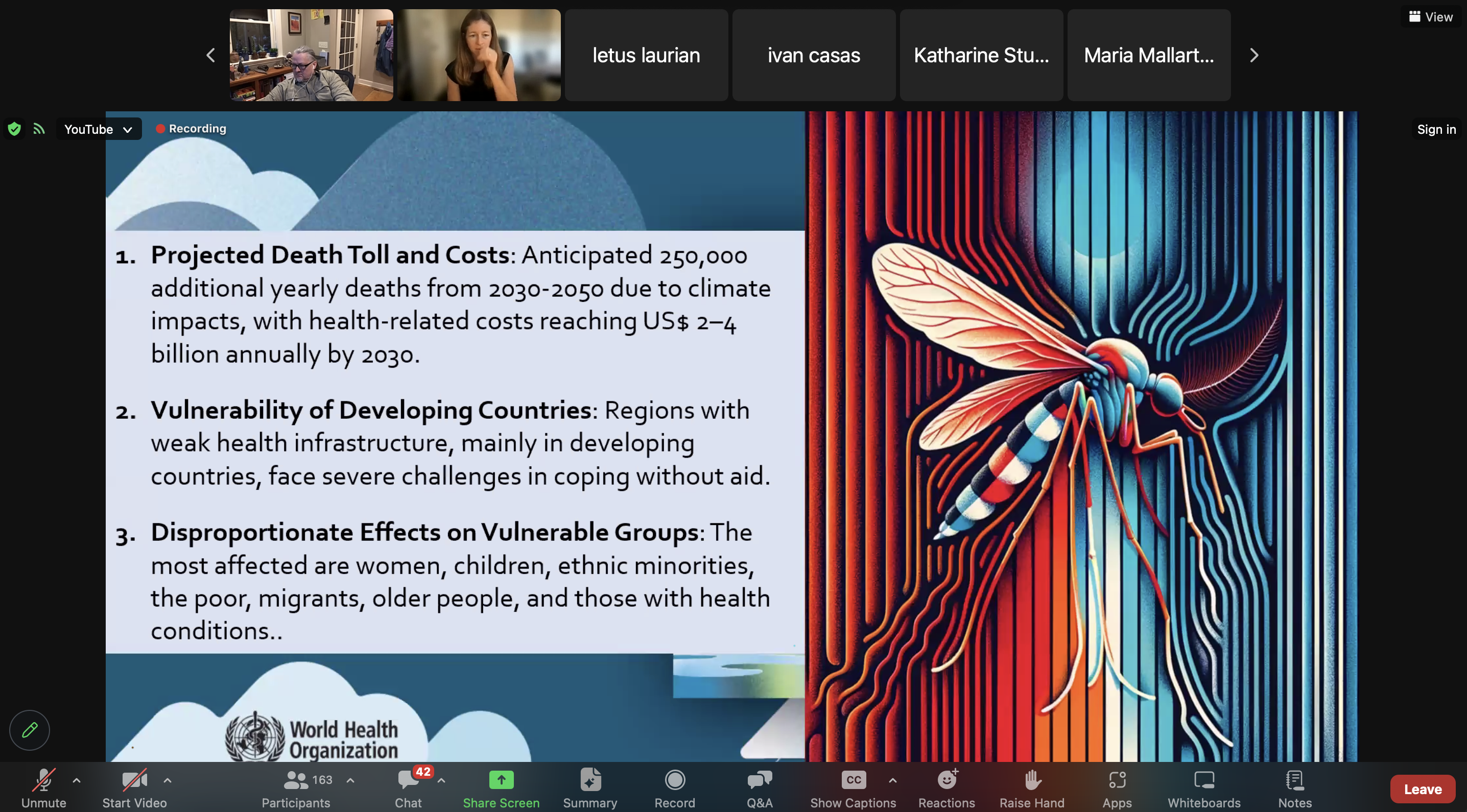
MASTERCLASS: Top experts discuss climate, mosquitoes and disease

On December 14th at 5 pm EAT, the 44th edition of Masterclasses was convened by the Ifakara Health Institute, University of Glasgow, and the MESA Alliance. This event brought together global experts who have made substantial contributions to malaria research and control on a global scale.
Co-hosted by Fredros Okumu, Professor of Vector Biology at the University of Glasgow, UK, and former Director of Science at IHI, and Nana Williams from the MESA Alliance.
The discussion titled "Climate, Mosquitoes, and Disease" featured distinguished speakers such as Prof. Erin Mordecai from Stanford University, Prof. Abdisalan Noor from Harvard University, Prof. Leah Johnson from Virginia Tech University, Dr. Kimberly Fornace from the University of Glasgow, Prof. Sadie Ryan from the University of Florida, Prof. Madeleine Thompson from the Wellcome Trust, and Prof. Dave Smith from the University of Washington.
Understanding Climate Change
The speakers delved into the definition of climate change, describing it as a significant variation in average weather conditions over several decades—resulting, for example, in warmer, wetter, or drier climates.
The impact of climate change on human lives and health was discussed, emphasizing its threat to essential elements of good health, including clean air, safe drinking water, nutritious food supply, and secure shelter, leading to an increase in the spread of diseases such as malaria.
Climate Change and Malaria
The discussion highlighted key statistics, projecting an anticipated 250,000 additional yearly deaths from 2030-2050 due to climate impacts, with health-related costs reaching US$ 2-4 billion annually by 2030, as reported by the World Health Organization.
Adaptation of mosquitoes to climate warming
Given the association of malaria with warm temperatures, scientists explored the potential impact of rising temperatures on mosquitoes. Data presented by Prof. Erin Mordecai and colleagues indicated that mosquito and pathogen traits related to survival, development, and reproduction are temperature-sensitive.
They argue that “the direct effects of warming temperatures are likely to promote greater environmental suitability for dengue and other arbovirus transmission by Addes argypti and reduce suitability for malaria transmission by Anophdes gombiac.”
They emphasized the need to further understand how climate change may affect mosquito distribution, abundance, and pathogen transmission.
Climate Change, a burden to health systems
The session highlighted the adverse effects of climate change on health systems, particularly in developing countries with limited functionality. Flooding, for instance, can hinder access to health facilities due to poor roads, transforming what should be a "few-hours trip into a few days," according to Prof. Thompson.
Vulnerable groups, including women, children, ethnic minorities, the poor, migrants, older individuals, and those with health conditions, face heightened challenges. Prof.
Focusing on fundamental solutions
Prof. Noor urged the attendees to focus on strengthening health systems, acknowledging that while climate change is detrimental to malaria control, its broader impact on humanity shows a need for a comprehensive approach.
The discussion emphasized the importance of strengthening health systems, with or without climate change considerations. He mentioned that this has been a challenge to developing countries for over 40 years, long before climate change was a topic of interest.
Addressing research challenges
The masterclass concluded that while some research has been conducted to understand the complex relationship between climate change, mosquitoes, and malaria, we have only scratched the surface. Conducting experiments at scale is challenging, and results might not seamlessly translate into real-world scenarios.
In conclusion, Prof. Thompson urged scientists to capitalize on the evolving climate conditions to conduct experiments in the real world. It is through such endeavors that we may gain insights that equip us to combat the effects of climate change on malaria transmissions. As we delve deeper into practical applications, we may discover strategies that have a meaningful impact on the complex interplay between climate, mosquitoes, and disease transmission.
Those who missed the event are invited to watch the discussion here.
About Ifakara Masterclasses
Dr. Okumu described Ifakara MasterClasses as a platform for discussions with experts, fostering a practical understanding of malaria control topics for researchers, postgraduate students, National Malaria Program officials, and advocates.
